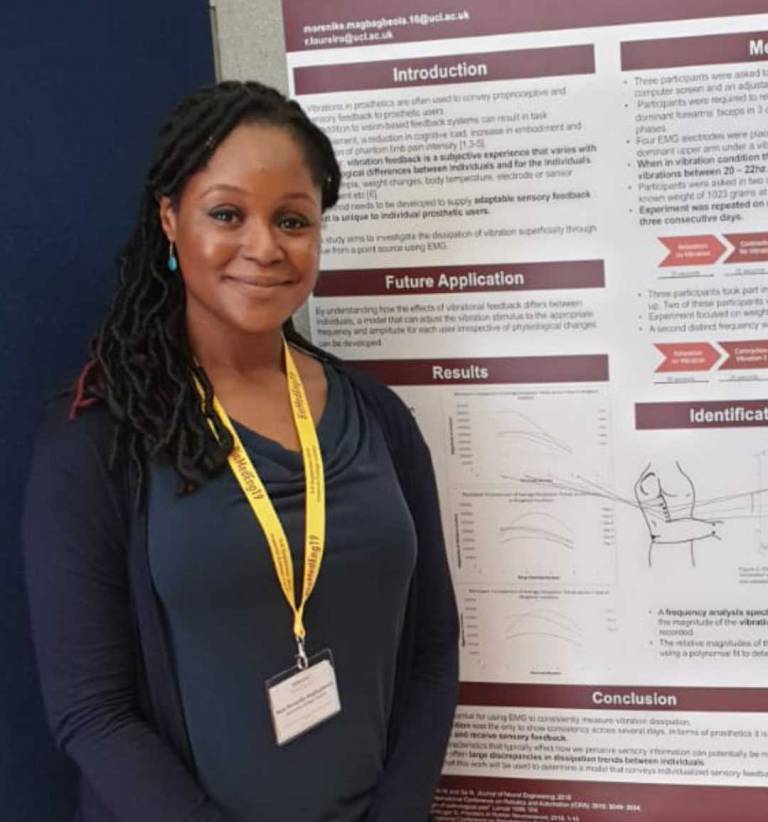Women and Girls in Science: Morenike Magbagbeola
11 February 2022
For the International Day of Women and Girls in Science on 11 February 2022, we are celebrating some of the amazing women working at WEISS.

Reni is currently a research assistant at WEISS working on the development of a robot-assisted organ perfusion machine for academic research. After completing her bachelor’s degrees in the United States in Electrical Engineering and Applied Physics, Reni went on to do a masters in Robotics and Computation at UCL. She has recently completed her PhD in adaptive sensory robotics. Her main research interests have been in sensorimotor feedback for robotic applications and translational healthcare technology.
What is your favourite thing about your job?
The different people I get to work with! Due to the nature of the research, I have the opportunity of working with some amazing engineers and clinicians. There is a great deal of opportunity to discuss our work and problem solve together which has allowed me to implement engineering principles for healthcare technologies in a novel way and grow as an individual researcher.
What inspired you to work in this area? / Did you have a role model that influenced your decision to work in science?
I have been interested in healthcare technology and robotics since I was young and have pursued projects and research interests that I felt could make a difference while pushing the boundaries of science. I’ve been fortunate to have had a few role models and mentors during my academic career (both in and out of UCL) who have helped and supported me along the way and led me to some really interesting projects.
What has been the biggest challenge of your career so far?
I have a learning disability that was discovered late in life, and it has made things exceptionally difficult in the past. Fortunately, family, friends, mentors, and my own experiences have taught me that the ability to think in a way atypical to others can be a benefit in research and in life.
What has been the highlight of your career so far?
There have been a few personal highlights over the years but the memory that stood out to me immediately was when a student I mentored informed me that not only had they passed their course but that they also wanted to pursue a career in robotics. They went on to do a masters!
What’s the best piece of advice that you have received that has helped you in your career?
Attempt everything in small, realistic, and manageable steps (this works well in life in general too!) and that the person who should believe in you the most should be yourself.
What advice would you give to young girls thinking about going into science?
If it interests you then just go for it, whether you think you have the ability to do it or not. In my experience, it is easier to push through most challenges and obstacles when you enjoy the work that you do.
 Close
Close

